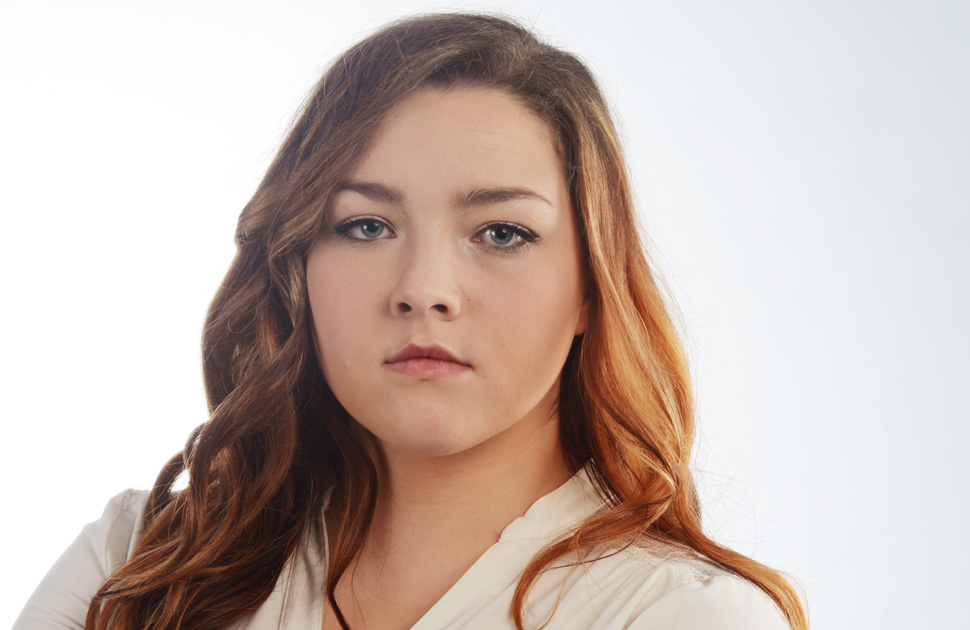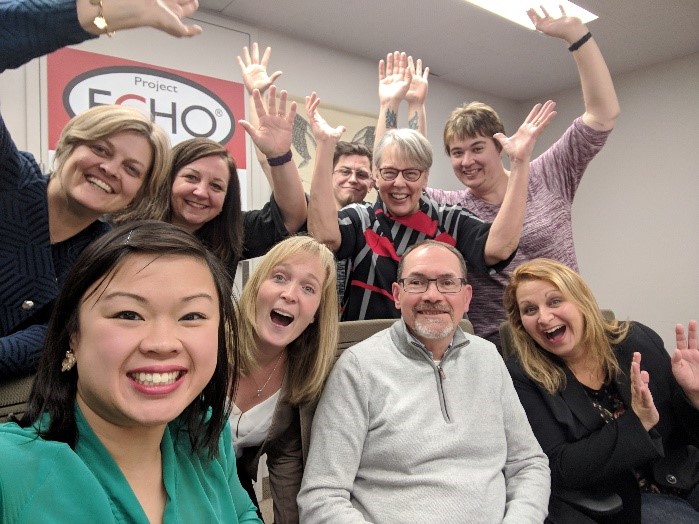CHEO is one of the largest providers of mental health services in Ontario for youth and their families. Our mental health program provides a broad range of services in schools and the community as well as day treatment programs and inpatient care when needed.
Access CHEO Mental Health services
There are three ways that clinicians, mental healthcare providers, schools, patients, and families can access CHEO's Mental Health services:
Emergency room visit |
| Children and youth (up to 17 years) experiencing a mental health crisis can access CHEO's Mental Health Services through the hospital Emergency department. Children and youth will be seen by a crisis team member and/or an emergency room physician. These specialists will provide medical and mental health assessments as needed. The assessment will determine if the child or youth needs to be immediately admitted to the hospital's mental health unit, referred to one of our outpatient mental health program or to a community-based service or specialist. To learn more about CHEO's specialized services, please read the list of specialized CHEO Mental Health Services below. |
Hospital and community clinician referral |
|
Children, youth, families and health-care providers can now connect, request information and book referrals for CHEO mental health services through 1Call1Click.ca.
1Call1Click.ca is a new bilingual service designed to match children, youth and families living in Eastern Ontario with the right mental health and addiction services, at the right time. An initiative of the Kids Come First Health Team, 1Call1Click.ca is the first of its kind in Ontario and brings together 33 local providers of child and youth mental health and addiction services.
|
CHEO mental health services
Below is a complete list of all mental health services and programs available at CHEO.
Emergency department and Mental Health Services
About these services:
What we do |
| Children experiencing a mental health crisis and arriving at the hospital Emergency department will be seen either by a Crisis Intervention Worker or an Emergency room physician. These specialists will provide a medical and psychological assessment. The assessment will determine if the child needs to be immediately admitted to the hospital's mental health unit, referred to one of CHEO's outpatient mental health program or referred to a service or specialist in our community. |
How to access |
| Address:
By bus: OC Transpo buses run across Ottawa. Visit their website to plan your trip, find out about what routes are available and more. There are currently two routes that stop in front of CHEO's main campus: route 45 and route 55. You can also call OC Transpo's information line at 613-741-4390 for schedule details. |
What to expect |
| When the child or teen arrives at CHEO's Emergency department, they will meet a triage nurse, who will ask about the reason for their visit. The nurse will assess how urgent the situation is, and decide if the child or teen needs medical treatment right away. After seeing the triage nurse, a Crisis Intervention Worker or Emergency Physician will meet with the child or teen, as well as parents and guardians to try to understand the situation, and everyone's concerns. We may speak with the child or teen separately, as needed. The child or teen will be assessed for safety, mental health issues, and provided with medical treatments if needed. Most children and youth go home after their assessment in the Emergency Department. The Crisis Intervention Worker or Emergency Physician will discuss safety concerns and a follow-up plan with the youth and family before they leave. If the child or teen is admitted to hospital, we will provide information on next steps. |
Urgent Mental Health Services
About these services:
What we do |
| The Urgent Care clinic provides assessment and consultation for children and youth up to 17 years old who have urgent mental health needs such as suicidal behaviour or an abrupt decrease in mood or functioning. The urgency or severity of need determines the priority for treatment. Patients are assessed and diagnosed by psychiatrists and psychologists with particular attention to safety and risk. If required, recommendations for follow-up care and treatment will be made. |
How to access |
|
Children, youth, families and health-care providers can now connect, request information and book referrals for CHEO mental health services through 1Call1Click.ca.
1Call1Click.ca is a new bilingual service designed to match children, youth and families living in Eastern Ontario with the right mental health and addiction services, at the right time. An initiative of the Kids Come First Health Team, 1Call1Click.ca is the first of its kind in Ontario and brings together 33 local providers of child and youth mental health and addiction services.
|
What to expect |
| The clinician will talk to the parent and youth. He or she may also ask the parent and youth to complete questionnaires. In order to accommodate the large demand for the service, we are only able to see families for a short period of time and are not able to offer ongoing follow-up care. At the end of the initial assessment (typically one session), the clinician will discuss recommendations and provide feedback to your child's pediatrician or family doctor. When a child is experiencing significant difficulty with coping and has limited therapeutic support, a brief follow-up may be provided until appropriate follow-up services are arranged. |
Mental Health Inpatient Services
About these services:
Psychiatric inpatients |
||||||||
|
||||||||
Eating Disorders program—Inpatient, Outpatient, and Day Treatment programs |
||||||||
|
Mental Health Outpatient Services
About these services:
CHEO programs for youth and young adults
About these services:
Transitional Age Youth |
||||||||
|
||||||||
YouthNet/Réseau Ado |
||||||||
| YouthNet/Réseau Ado is a bilingual for youth by youth mental health promotion program at CHEO. YouthNet offers alternative support services for youth aged 13 to 20. We strive to reduce the stigma surrounding mental health and illness through prevention and intervention activities, education, research, and advocacy. More information can be found at YouthNet's webpage. |
Additional CHEO mental health programs and collaborations
About these services:
Behavioral Neurosciences and Consultation Liaison |
||||||||||||
|
||||||||||||
BRiDGES Project |
||||||||||||
|
||||||||||||
Child and Youth Protection |
||||||||||||
|
||||||||||||
Early Connections team |
||||||||||||
|
||||||||||||
Mental Health Neuropsychology |
||||||||||||
|
|
Online/tele programs
About these services:
Project ECHO Ontario Child and Youth Mental Health |
||||||||
| ECHO Ontario Child and Youth Mental Health (CYMH) is an innovative, technology enabled collaborative learning program. Through this program, Primary Care Providers and mental health clinicians work together to care more effectively for children and adolescents with mental health problems across Ontario. ECHO Ontario CYMH is fully funded by the Ministry of Health. Our program is open to Primary Care Providers including:
CPD, Mainpro+ and MOC's are provided for sessions attended, at no cost to the participant. More information and the registration link can be found on our ECHO Ontario Child and Youth Mental Health webpage. |
||||||||
TeleMental Health Services (TMHS) |
||||||||
|
Visit our online resource section to learn about mental health resources and supports in the region, and access CHEO recommended websites, videos and more.
Mental health resources






